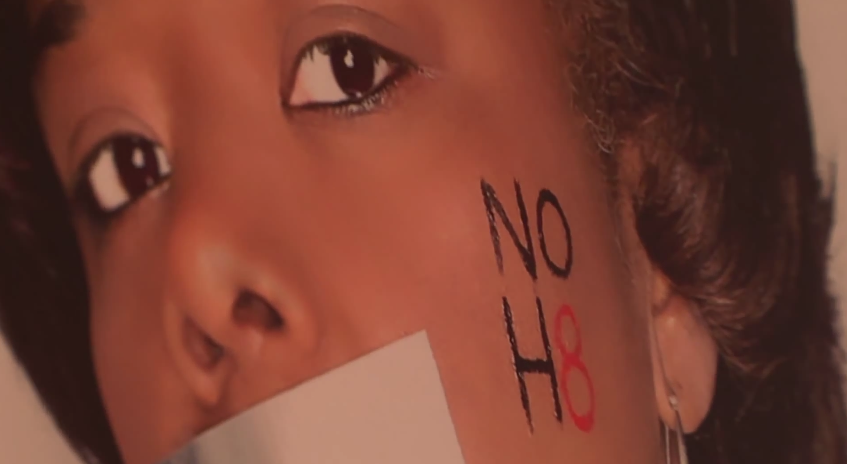The New Black is frustrating — but I mean that in the best way possible. The documentary from PBS’ Independent Lens label plays this Thursday at the Central Madison Library, and audiences are in store for a unique perspective within the LGBT community: the black and gay experience. In their own modern civil rights struggle, members and allies of the LGBT community find victories and setbacks in their fight to legalize same-sex marriage, a political back-and-forth shown in the film in microcosm through Maryland’s 2012 elections. The frustration comes not only from the depriving certain groups of those civil liberties but from the expectation that black Americans bear greater culpability in making such progress given their social proximity to the Civil Rights Movement of the 1960s.
In presenting both sides of the proverbial “coin,” director Yoruba Richen documents the day-in, day-out campaigning of activists like Sharon Lettman-Hicks, founder of the National Black Justice Coalition, a group dedicated to protecting black members of the LGBT community. A pillar of idealism and perseverance, Lettman-Hicks makes no qualms about the hypocrisy she sees in black fundamentalist Christians voting against same-sex marriage in state initiatives. It’s certainly an issue in Maryland, where legislation was approved by the state senate in 2011.
Just how legitimate are Lettman-Hicks’ claims of hypocrisy toward God-fearing African-Americans? Is it fair to expect progressive politics from a previously (and in some respects, still) marginalized demographic? You’d hear a different answer from pastor and Executive Director of the Maryland Marriage Alliance Derek McCoy. McCoy sees the “issue” of same-sex marriage as one whose boundaries are drawn along religious lines, though in leading up to a 2012 referendum against the marriage bill (Maryland Question 6), he’s quick to tout the principles of democracy as reason enough for his opposition.
It’s over Maryland Question 6 that The New Black‘s dialogue takes place, but Richen doesn’t use conflicting perspectives like that of McCoy and Lettman-Hicks to equivocate. Regardless of the responsibility of one group to another, the perpetuity of injustice implied in The New Black‘s title elevates its contemporary subject matter to history in a broader scope. Both pro- and anti-gay marriage advocates invoke the struggles of black Americans and (occasionally) slavery, and while the Underground Railroad and the abolitionist movement presented far more heinous consequences for those risk-takers, Richen finds a poetic mirror in a moment as small as a gay rights advocate coming out to her foster mother.
There’s at least one constant across these civil rights movements. Broad encompassing subjugation brings with it deeply personalized experiences, as seen in two contrasting interviews with President Obama, who at first affirms his belief in “traditional” marriage and then contradicts that stance four years later. But Richen captures the subjective experiences best in the coming out of Tonex, an immensely popular and now openly gay Gospel singer whose social standing is altogether black, gay, and very human. For how can so much hate be directed at someone who’s brought so much joy to the world?
- The New Black plays this Thursday at 6:30p in Rm 302 the Central Madison Library. It will be followed with a discussion featuring prominent community members including Christ the Solid Rock’s Rev. Everett Mitchell. FREE.

